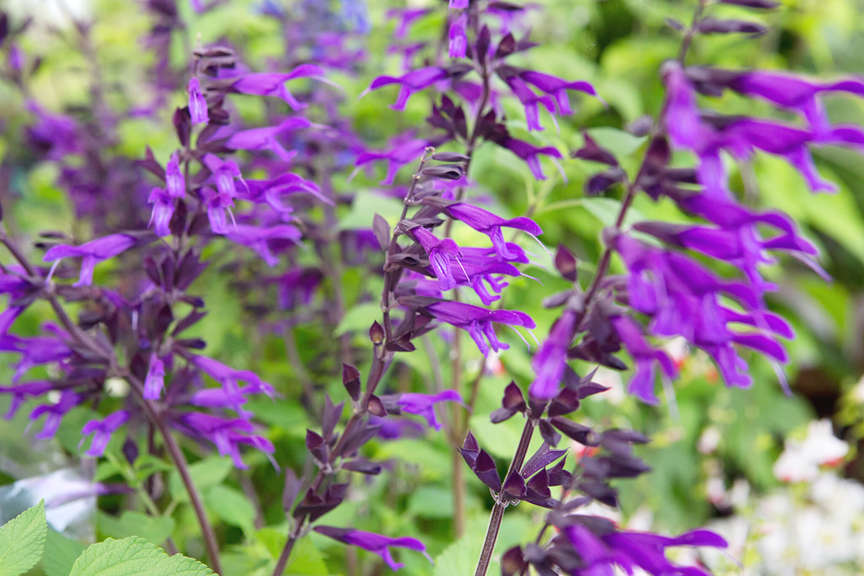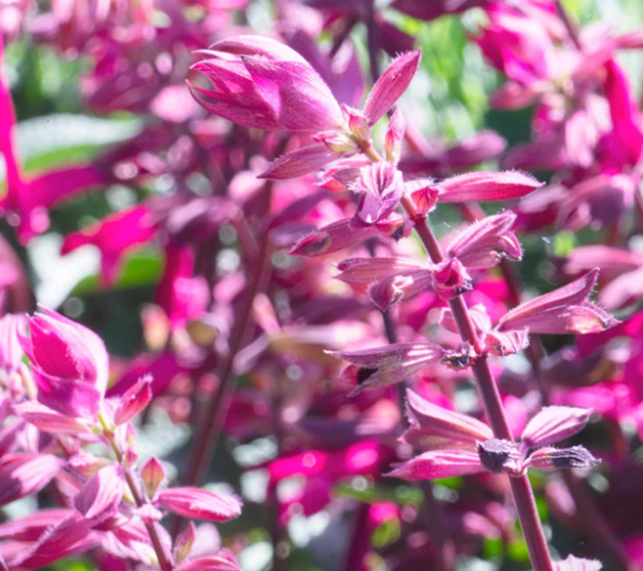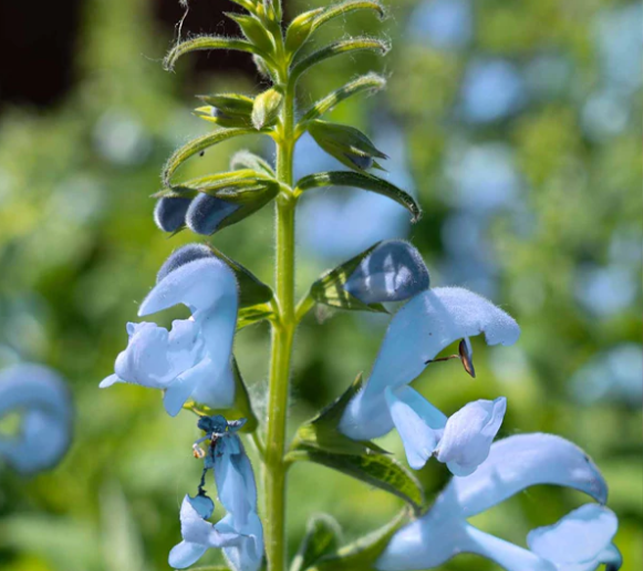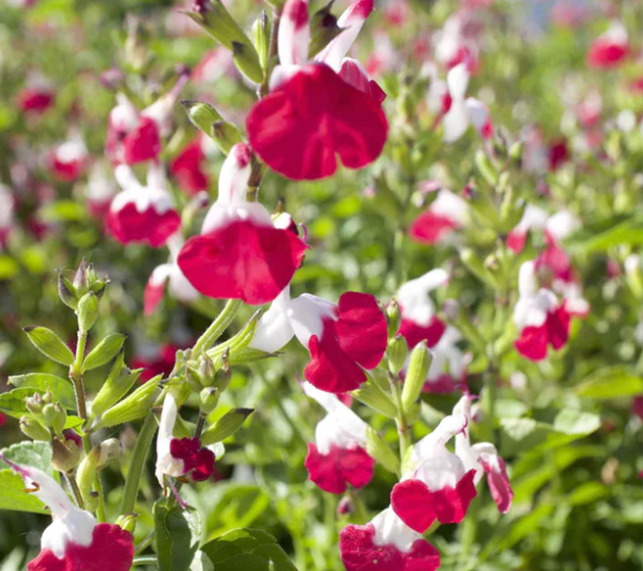
Summer of Salvias
Sage Advice: Plant More Saliva
Salvia, commonly referred to as sage, is a great addition for people who want multi-faceted garden plants. These sun-loving perennials attract beneficial pollinators, produce beautiful flowers, and can be used in culinary creations. Plant a palette of colors and sizes.
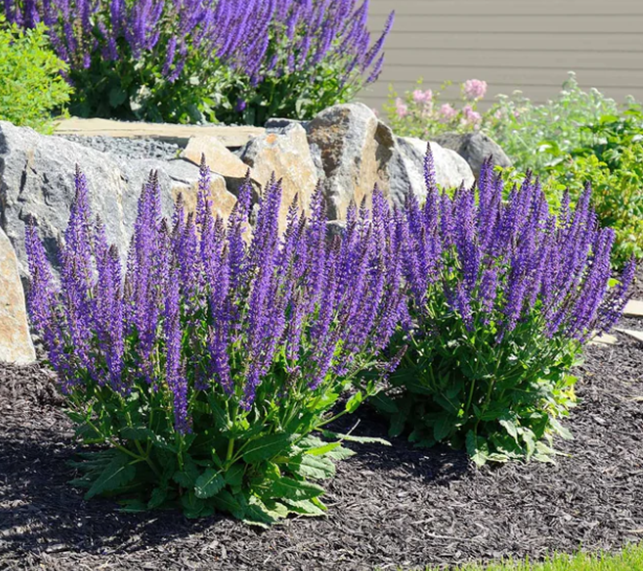
Growing Superb Salvia
- Sun: Most salvias do well in full sun but thrive in morning sun/light afternoon shade. However, some varieties such as the California White Sage and Mexican Bush Sage prefer full sun.
- Water: Depending on the variety, they are can have low to moderate water needs. Most mature plants become fairly drought tolerant.
- Soil: Thrives in enriched, well-draining soil.
- Fertilizer: Fertilize and add some light compost in early spring.
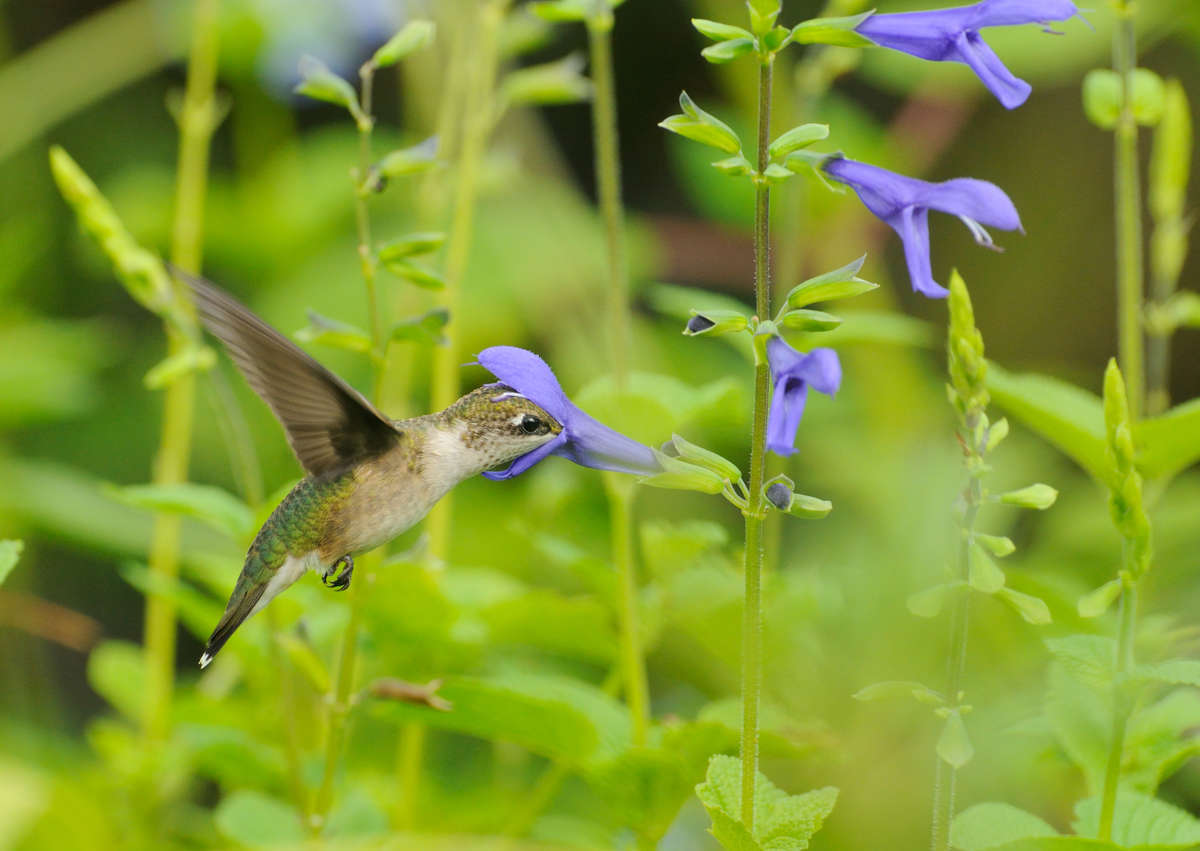
Benefits of Growing Salvia
- Pollinators: If you want your garden bustling with bees, butterflies, and hummingbirds then salvia is the plant for you. Its pleasant scent will also help to deter some pests from going after your vegetable garden.
- Beautiful Blooms: Salvia has a long bloom period; with a bit of maintenance, your plant will produce flowers from early spring to the first frost.
- Culinary Creations: Varieties such as Sage 'Garden Grey' have very aromatic peppery leaves that can be used in sauces, soups, cocktails, and much more.

